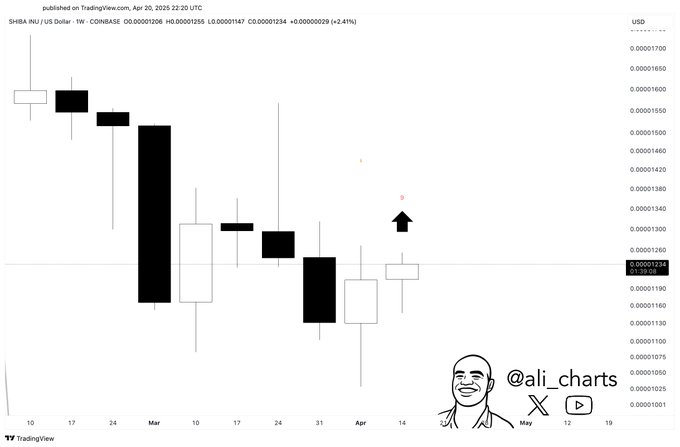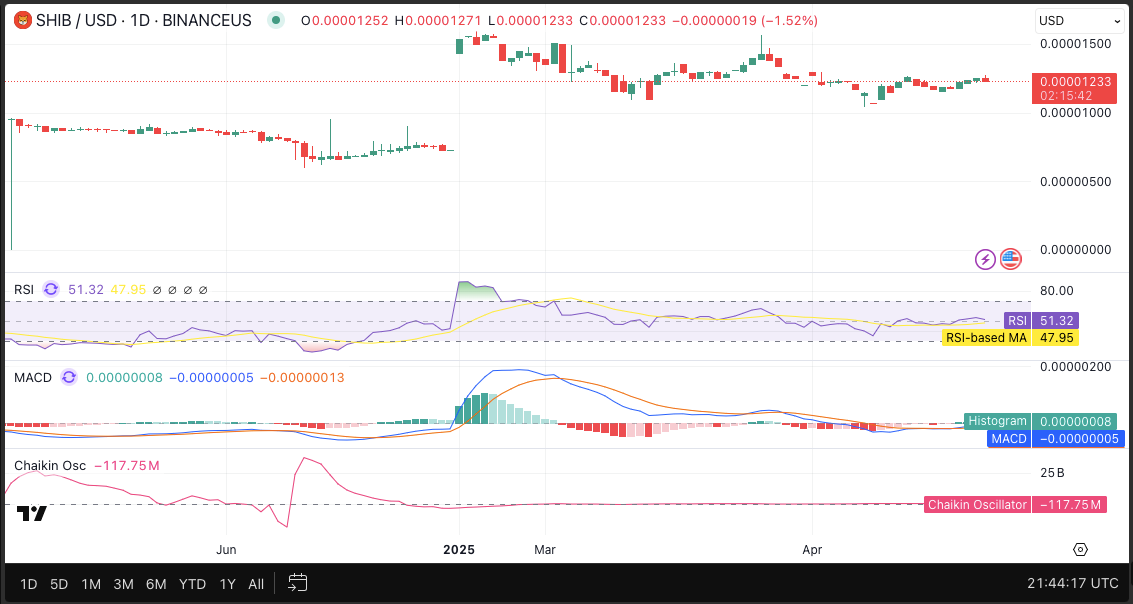Key Insights:
- SHIB community recently recorded an 825% surge in the token burn rate within 24 hours.
- Over 26.4 million SHIB tokens were permanently removed from circulation during this burn event.
- SHIB’s total burned tokens have reached 410.7 trillion since the burn initiative began.
Shiba Inu (SHIB) community witnessed a massive surge in token burn activity over the past 24 hours. Shibburn reports that 26.4 million SHIB tokens exist permanently outside of circulation.
The fast-blasting increase of 825% in the burn rate demands analysis into how it will affect SHIB’s future price movement.
From the start of this initiative, the Shiba Inu token burn quantity has exceeded 410.7 trillion. During this period, the market showed strong enthusiasm. Meanwhile, SHIB saw a modest price increase, holding steady at $0.00001233.
After generating market positivity through the burn, the market shows conflicting indicators in the short term. The burn mechanism of SHIB supports supply management and develops community-based support for the cryptocurrency.
Attention shifts towards market response after the reduction of circulating supplies becomes complete. Market observers are waiting to determine if this recent burning activity will overcome resistance to the Shiba Inu price.
SHIB Holds Above 20-Day EMA Level
During the previous session, changes in the SHIB market caused prices to reach $0.00001255. However, they later encountered light resistance.
The movement enabled Shiba Inu to recover the 20-day Exponential Moving Average, which totaled $0.00001220. The price movement shows potential, but technical analysis indicators indicate short-term market confusion.

The current Relative Strength Index indicator reached 51.32. This positioned the momentum sector in a neutral condition across the measurement midpoint.
The RSI-based Moving Average sits at 47.95 while showing a lower position, validating no significant market trend. Weak momentum exists according to the Moving Average Convergence Divergence (MACD) indicators because their figures show minimal change.

The current MACD indicator stood at -0.00000005 below the signal line at -0.00000013. These values demonstrated negligible differences, indicating minimal forces pushing SHIB upward or downward.
To reach its next meaningful price movement, Shiba Inu needs a decisive external factor, as its momentum remains sluggish.
SHIB Trades Near Critical Liquidation Zone
The current price position of SHIB rests within a crucial liquidation area at $0.00001237. This holds numerous leveraged long positions.
Most leveraged long positions between 25x and 100x face automatic closure. This risk increases as price drops continue. Short-term market selling activity will likely commence if prices fall below this point.

Market data showed traders have set up their short positions starting from the $0.00001282 price level. This suggested strategic positioning in response to market trends.
An intense price rise will likely wipe out numerous bearish traders, leading to an additional upward market movement. The position of competing zones against each other forms a constrained trading area, thus boosting the likelihood.
TREAT Token Misinformation Sparks Official Clarification
Shiba Inu developer Kaal Dhairya addressed recent confusion regarding the TREAT token’s availability across different blockchains. The TREAT token became available on the Ethereum network in January 2025.
However, the project did not initiate other blockchain expansions. Reports about false impersonator tokens surfaced on Solana and Base before Dhairya issued the statement.
A compromised social media account labeled “Shiba Inu Treat” contributed to the misinformation, leading to fake token deployments. The team leader advised all users to avoid contacting these unverified token versions.
According to him, the Ethereum deployment stands as the sole legal TREAT version at the present moment. The statement clarifies the scams after scammers started using SHIB branding to advertise unauthorized assets.
Core members who serve as situation monitors have paid attention to this action. The team stays devoted to community protection as they work to provide clear updates and vital information to members.
Lucie Urges SHIB Users to Stay Alert
SHIB community member Lucie published an alert notice about the increasing scams affecting the network. She acknowledged the difficulty of removing bad actors while dedicating herself to distributing accurate information.
Staff members, along with other SHIB efforts, work to defend SHIB’s reputation while protecting token owners.
Rising numbers of imitation tokens and deceptive promotional activities confuse purchasing customers. Team leaders make it essential for users to validate their sources when working with tokens that carry the SHIB brand.
The expansion of fake projects demands that people maintain effective communication across various networks.
